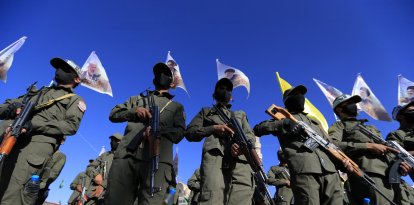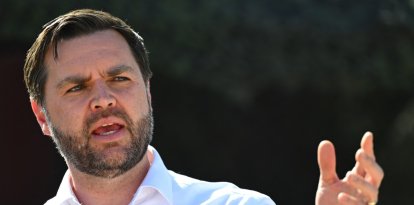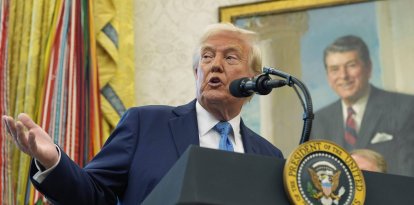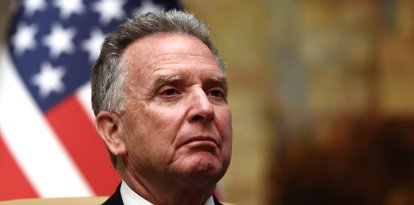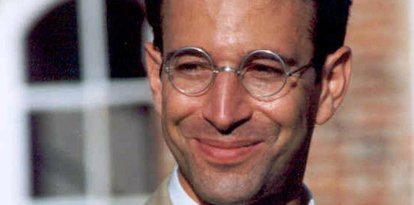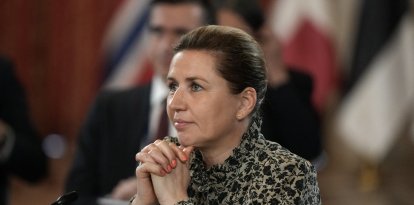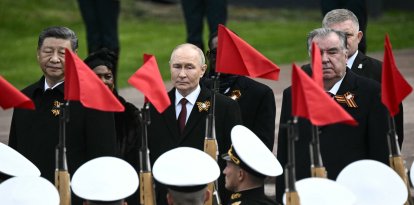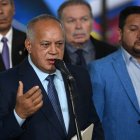Petro and Lula propose new elections for Venezuela, and opposition leader Machado responds: 'It is disrespectful'
Earlier, Biden seemed to support Brasilia and Bogota’s proposal. But the White House had to rectify the president’s statement.
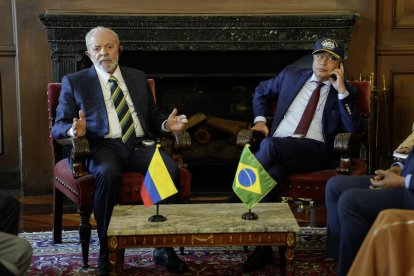
Petro and Lula's proposal was not accepted by the Maduro regime either
The political situation in Venezuela continues to move the regional geopolitical chessboard. This time, the presidents of Colombia and Brazil, Gustavo Petro and Lula da Silva, proposed a different path in the last hours to try to solve the institutional crisis in their neighboring country after the electoral fraud of last July 28: repeat the elections.
It all started with Lula, who, in an interview, stated that he is working with Mexico and Colombia to find solutions to the crisis in Venezuela. The president suggested two ideas: a coalition government formed by members of Chavismo and the opposition and a rerun of the elections.
In that sense, Lula said that he cannot recognize either Nicolás Maduro or Edmundo González as winners because there are no official results and "he does not have the data," despite the fact that the opposition managed to collect and publish online evidence of his resounding victory, which was more than thirty points in favor of Gonzalez.
"Maduro has six months in office. If he has common sense, he could even call for new elections, creating an electoral committee with members of the opposition and observers from all over the world," said Lula.
🚨 | Lula:
— Orlando Avendaño (@OrlvndoA) August 15, 2024
"Maduro tiene seis meses de mandato. Si tiene sentido común, incluso podría convocar unas nuevas elecciones".
pic.twitter.com/i3h2NrfIsu
Right after that, the Colombian president, also leftist Petro, said on X (formerly Twitter) that the solution to the institutional and political crisis the country is going through passes through the will of the dictator Maduro.
"A political solution for Venezuela that brings peace and prosperity to its people depends on Nicolás Maduro. The experience of the Colombian National Front is an experience that used transitorily can help the definitive solution," Petro said.
In one post below, the Colombian president stated that to achieve a solution to the crisis, work must be done based on the following agreement: "Lifting of all sanctions against Venezuela. General national and international amnesty. Total guarantees for political action. Transitory cohabitation government. New free elections."
Levantamiento todas las sanciones contra Venezuela.
— Gustavo Petro (@petrogustavo) August 15, 2024
Amnistía general nacional e internacional.
Garantías totales a la acción política.
Gobierno de cohabitación transitorio.
Nuevas elecciones libres.
Minutes after Petro and Lula's suggestions were made public, President Joe Biden, who has been in direct contact with his Brazilian counterpart to coordinate his response to Venezuela, confirmed with reporters that he supported the proposal for new elections. However, Biden's answer turned out to be confusing, and the White House, hours later, had to rectify and correct the president, who had misunderstood the question posed by the press.
Aquí el momento en el que Biden dice que sí apoya nuevas elecciones en Venezuela.
— Orlando Avendaño (@OrlvndoA) August 15, 2024
Ya la Casa Blanca rectificó.
Exigen respeto a la voluntad de los venezolanos expresada el 28 de julio.
pic.twitter.com/vxgwrfz8ut
Washington, moreover, clarified that its position did not move one iota. They continue to recognize candidate Edmundo Gonzalez as the election winner and continue urging Maduro to recognize his defeat.
La política de EE.UU. sobre Venezuela sigue sin cambios. Maduro debe aceptar que Edmundo González obtuvo la mayoría de los votos en las elecciones presidenciales de Venezuela. Más de 12 millones de venezolanos votaron por el futuro de su país el 28 de julio, y sus votos deben ser…
— Embajada de los EE.UU., Venezuela (@usembassyve) August 15, 2024
Venezuelan opposition leader calls a repeat of the elections "disrespectful"
Maria Corina Machado, the leader of the opposition to Maduro's regime, quickly qualified Lula and Petro's proposal as "disrespectful" to Venezuelans who massively came out to vote against Maduro last July 28 despite all the outrages and arbitrariness they suffered in the previous months.
"If we go to a second (election) and Maduro does not like the result, what do we do, do we go to a third, and then to a fourth or a fifth? We went to an election with the rules of tyranny despite the criticisms of many and we won," Machado said in a press conference with journalists from Argentina and Chile.
"We went to an election with the rules of tyranny. Many people told me that we were crazy. That we were taking a risk and that there was going to be a monumental fraud that we were not going to be able to prove. And we trusted the Citizens' Organization. And there were people who risked their lives, their families, their homes, and others were killed. Today they are in prison, in hiding or have had to flee the country. For me, to propose to disregard what happened on July 28 is a lack of respect to the Venezuelans who have given their all and who expressed the sovereignty of the people. Popular sovereignty is respected and the elections have already taken place," stated the opposition leader.
Los venezolanos VOTAMOS y GANAMOS!
— María Corina Machado (@MariaCorinaYA) August 15, 2024
La Soberanía Popular se respeta.
Ahora, con más fuerza que nunca:
Nos vemos este sábado 17 de agosto en Venezuela y el Mundo!! pic.twitter.com/SgYgQeKEPa
Machado's words come in the midst of a bloody wave of repression by Maduro's regime following the July 28 elections. Since Election Day, more than 2,000 people (including more than 100 minors and young people who have autism) were arbitrarily imprisoned. A large majority of the detainees, many of them political activists, journalists or protesters, were "expressly" tried without legitimate self-defense, convicted on charges of terrorism or treason, and transferred to prisons without the opportunity to see their families.
In addition to the detainees, 24 people have already reportedly been killed in post-electoral protests. It has also been recorded how the repressive forces of Chavismo have gone house to house, kidnapping opposition activists and even ordinary citizens in "Operation Tun Tun," a campaign of extrajudicial and psychological repression applied by Maduro's regime to diminish dissidence.
In that sense, Machado stressed that a proposal for a government in cohabitation would have no place in Venezuela since it would be formed by two forces: one democratic—the opposition—and another criminal -Maduro's regime—which has no intention of respecting the rules of the game and is seeking to entrench itself in power despite losing the elections by a historic margin.
"We must be careful with the examples referred to about coalition governments," Machado mentioned in the early press conference, referring to the fact that cohabitation governments in democracy do not apply to the Venezuelan case. "Both have been democratic groups not involved in criminal issues and this is not the case."
However, the opposition leader opened a clear path toward negotiation: "We are willing to give guarantees and safeguards, we are not going to start a process of revenge, quite the contrary."
Maduro and AMLO do not want to repeat elections either
Meanwhile, the dictator Nicolás and the Mexican president, Andrés Manuel López Obrador, affirmed that they are against Brasilia and Bogotá's proposal because the Venezuelan Supreme Court of Justice, which is co-opted by the Chavista regime, will decide the electoral conflict.
"Let's see what the court resolves, I don't think it's wise for us from outside, a foreign government, whoever it may be, to give our opinion on something that should be resolved by Venezuelans," the Mexican president said Thursday. AMLO has adopted a discourse akin to Chavismo.
The dictator Maduro referred directly to Lula and Petro, urging them not to meddle in Venezuelan internal politics, although taking care of the forms.
"In Brazil, also President Bolsonaro, an extreme right-winger and ally of Venezuela's fascist extreme right, shouted fraud and did not accept defeat. It was the Brazilian court who decided, and no one from Venezuela, neither our government nor anyone in the world, asked for anything," Maduro said about Lula's words before referring to Gustavo Petro.
"In the case of Colombia, we have been rebuilding relations with great dedication. I think relations with President Petro are going well. We, privately, talk about many issues, we call each other on the phone and we talk about many issues as well. But I would never, with Colombia, practice microphone diplomacy. Never. I will never do it."
ÚLTIMA HORA | Maduro responde a propuesta de Petro: 'Jamás voy a dar opiniones de qué debe hacer Colombia para superar la guerra que está terrible' https://t.co/FyMWH3fRYt pic.twitter.com/4D5PMV1S9u
— AlbertoRodNews (@AlbertoRodNews) August 16, 2024
Subsequently, dictator Maduro wanted to emphasize that, according to his criteria, Colombia continues to be a diplomatic ally, unlike the United States, which he considers a nation that meddles in other countries' internal affairs.
"In the case of the United States it is different, because they have an interventionist imperial diplomacy, Biden is part of that interventionist diplomacy."
Maduro's words evidence his uncomfortable position at the geopolitical level, with two former allies, Petro and Lula, adopting a mediating stance in which, in short, they do not recognize him as the winner after the electoral fraud of last July 28.
RECOMMENDATION

